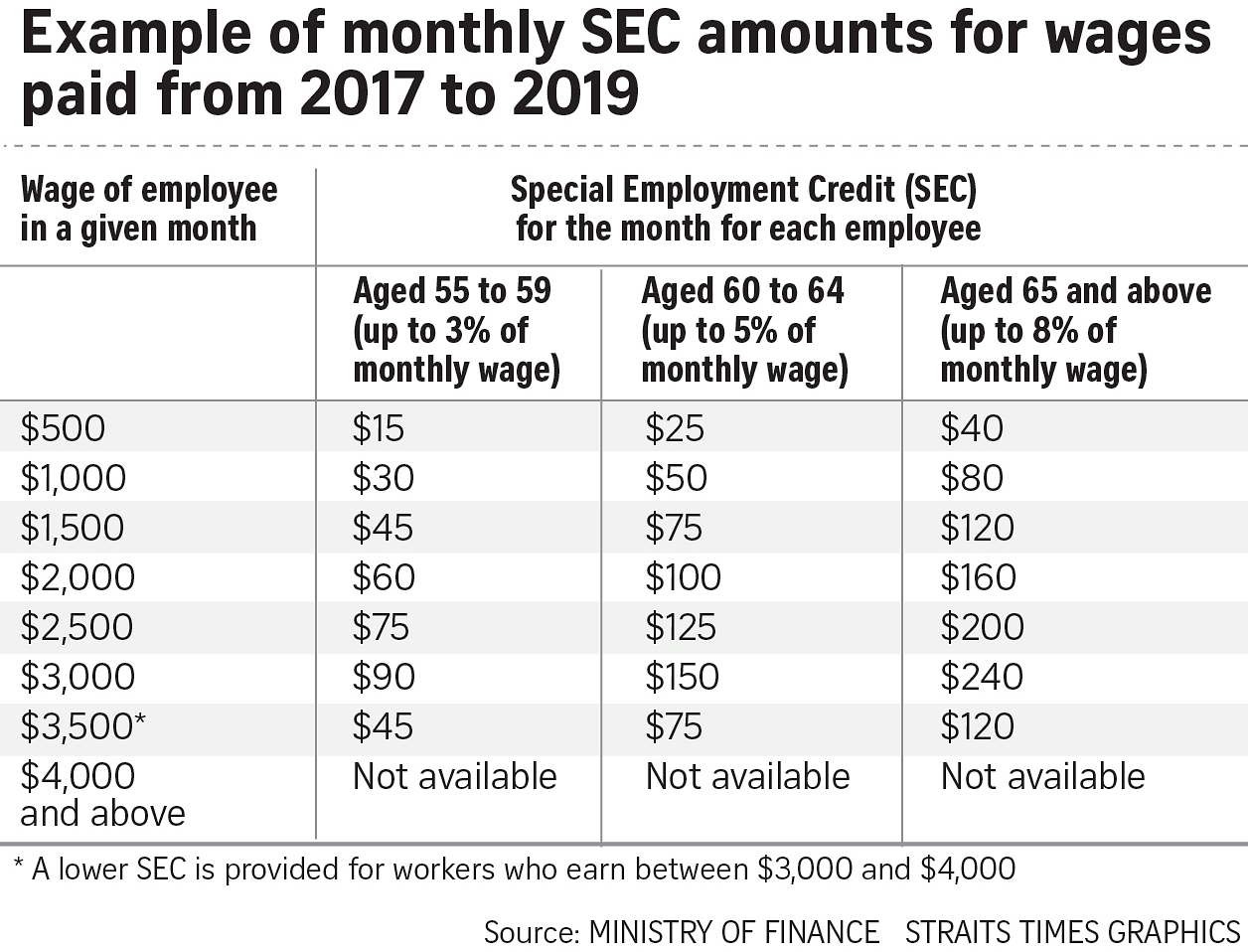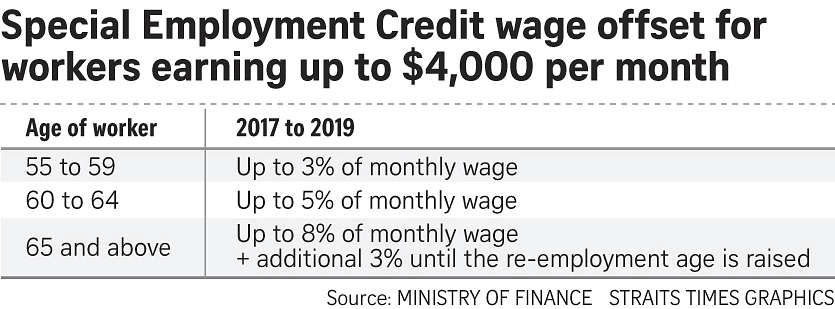Singapore Budget 2016: SMEs get help, including more corporate income tax rebate, extension of Special Employment Credit scheme
Sign up now: Get ST's newsletters delivered to your inbox
SINGAPORE - Small and medium-sized enterprises (SMEs) will get more support from the Government as they aim to succeed in a more competitive environment while contending with tighter labour constraints.
These include raising corporate income tax rebate from 30 per cent to 50 per cent of tax payable, capped at $20,000 each year for Year of Assessment 2016 and 2017.
The Special Employment Credit (SEC), which was due to expire this year, will also be modified and extended to the end of 2019, with a top-up of $1.1 billion. This will provide employers with a wage offset for workers aged 55 and above who earn up to $4,000 a month.
In his maiden Budget speech on Thursday (March 24), Finance Minister Heng Swee Keat said the need to restructure is "urgent and critical", pointing to how technological changes, especially in robotics and automation, are disrupting business models across all sectors.
Mr Heng added that while real wage increases over the past few years have benefited workers and households in Singapore, both businesses and workers will be "worse off" unless productivity improves in tandem.
Several measures were announced to address near-term concerns while encouraging restructuring.
The first source of support for firms comes from existing measures and public spending, including public infrastructure projects, Mr Heng said.
This year, total spending is expected to be $5 billion, higher than in FY2015. The increases are mainly in healthcare, education, security and urban redevelopment.
The Transition Support Package, introduced in FY 2013, will also see its largest payout to date, he said. This month, firms will receive a total of $1.9 billion for qualifying wage increases given under the Wage Credit Scheme.
Mr Heng added that public sector demand for construction projects is expected to increase significantly this year, helping to mitigate a decline in private sector construction demand.
This includes more than $2.5 billion of public sector contracts for smaller projects - construction value estimated to be below $100 million - which will benefit smaller construction firms.
Secondly, the corporate income tax rebate will be raised from 30 per cent to 50 per cent of tax payable, with a cap of $20,000 rebate each year for Year of Assessment (YA) 2016 and 2017. The last time a 50 per cent rebate was given was in YA 2001.
Mr Heng said the higher rebate was targeted at SMEs. It will cost an additional $180 million over two years, bringing the total support given to companies under the corporate income tax rebate to close to $1 billion over two years.
Thirdly, the Special Employment Credit (SEC), which was due to expire this year, will be modified and extended to the end of 2019, with a top-up of $1.1 billion. This will provide employers with a wage offset for workers aged 55 and above who earn up to $4,000 a month.

Employers with Singaporean workers aged 65 and above will continue to receive a wage offset of up to 8 per cent. This is in addition to the wage offset of 3 per cent for the re-employment of workers aged 65 and above till the re-employment age is raised next year.
The SEC will be up to 5 per cent for workers aged 60 to 64 and up to 3 per cent for those aged 55 to 59.

The scheme will cover about 340,000 workers, or about three in four older Singaporean workers, Mr Heng noted.
To support viable SMEs that may have cash flow concerns or wish to continue growing their business, an SME Working Capital Loan scheme - with loans of up to $300,000 per company - has been introduced.
Under this scheme, the Government will co-share 50 per cent of the default risk of these loans with participating financial institutions, to encourage lending to SMEs.
The loan will be available for three years, starting from this year.
The Government will also enhance the Revitalisation of Shops package, to better support promotional activities and upgrading projects in HDB town centres and neighbourhood centres. Spring will also work with the Federation of Merchants' Associations Singapore and local merchant associations to strengthen their capabilities to support heartland businesses.
Lastly, in view of challenging business conditions in the marine and process sectors and the reduction in the number of Work Permit holders in these sectors, the Government will defer levy increases for Work Permit holders in these sectors for one year.
Taken together, Mr Heng said the measures are appropriate to address the near-term concerns of Singapore firms, especially SMEs, while enabling restructuring.
"Some have asked for a repeat of support measures we saw in 2009. But that was when the economy was already in deep recession, and facing huge uncertainty.
"We must not let pessimism take hold, lest it creates self-fulfilling expectations."
Mr Heng added that the Government will continue to monitor the situation, and stands ready to act if conditions warrant.



